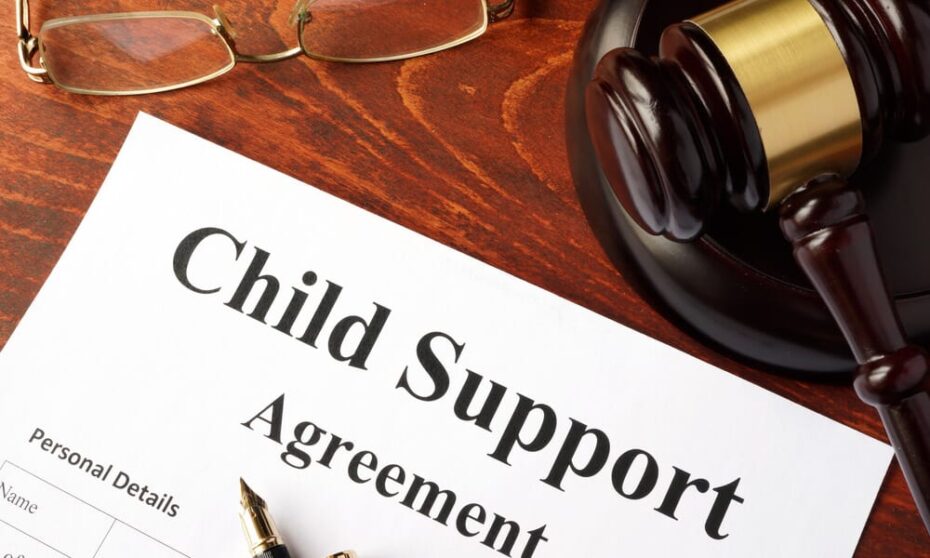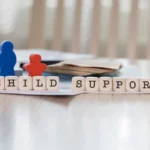When Does Child Support End In DC? – Child support is a crucial aspect of divorce and separation agreements, ensuring that children continue to receive financial support from both parents. However, the question of when child support ends can be a confusing and stressful one for many parents. If you’re a parent living in Washington DC, you may be wondering when your child support obligations will come to an end.
Fortunately, this Eastcoastlaws.com comprehensive guide will provide you with all the information you need to know about when child support ends in DC. From the age of emancipation to special circumstances that may extend child support, we’ll cover all the relevant laws and regulations that govern child support in the nation’s capital. Whether you’re a paying parent or a recipient, understanding your child support obligations is essential for ensuring the well-being of your children and protecting your rights as a parent. So, let’s dive in and explore the ins and outs of when child support ends in DC.
Understanding Child Support Obligations
Child support is a legal obligation that a parent has to provide financial support to their child. This obligation can arise out of divorce, separation, or paternity proceedings. In Washington DC, both parents are responsible for financially supporting their child until they reach the age of emancipation. Emancipation refers to the age at which a child is legally considered an adult and is therefore no longer eligible for child support.
The purpose of child support is to ensure that the child receives the financial support they need to meet their basic needs, including food, housing, clothing, and education. Child support is usually calculated based on the income of both parents and the needs of the child. The court takes into account factors such as the child’s age, health, education, and standard of living when determining the appropriate amount of child support.
It’s important to note that child support is not a punishment or a reward for either parent. It’s simply a legal obligation that both parents have to ensure the well-being of their child.
Factors That Determine Child Support In DC
In Washington DC, child support is calculated using the Income Shares Model. This model takes into account the income of both parents and the number of children in the family. The court uses a formula to determine the amount of child support that each parent is responsible for paying.
The formula takes into account the gross income of both parents, any deductions for taxes and other expenses, and the number of children in the family. Once the court determines the amount of child support, it will issue an order requiring the paying parent to make payments to the receiving parent.
It’s important to note that child support can be modified if there is a significant change in circumstances. For example, if the paying parent loses their job or experiences a significant decrease in income, they may be able to petition the court to modify their child support order.
When Does Child Support End?
In Washington DC, child support typically ends when the child reaches the age of emancipation. The age of emancipation in DC is 21 years old. However, there are some exceptions to this rule.
If the child is still in high school at the age of 18, child support will continue until the child graduates or turns 19, whichever comes first. If the child is disabled, child support may continue beyond the age of emancipation.
It’s important to note that child support does not automatically end when the child reaches the age of emancipation. The paying parent must file a motion with the court to terminate the child support order. If the court approves the motion, the paying parent’s child support obligation will come to an end.
Exceptions To Child Support Termination
There are some exceptions to the rule that child support ends at the age of emancipation in Washington DC. For example, if the child is still in high school at the age of 18, child support will continue until the child graduates or turns 19, whichever comes first.
If the child is disabled, child support may continue beyond the age of emancipation. In these cases, the court will determine the appropriate amount of child support based on the needs of the disabled child.
Additionally, if the child is in college or vocational school, child support may continue beyond the age of emancipation. In these cases, the paying parent may be required to contribute to the child’s college expenses, including tuition, room, board, and books.
Modifying Child Support Orders
Child support orders can be modified if there is a significant change in circumstances. For example, if the paying parent loses their job or experiences a significant decrease in income, they may be able to petition the court to modify their child support order.
Similarly, if the child’s needs change, such as if they develop a medical condition that requires additional expenses, the receiving parent may be able to petition the court to modify the child support order.
It’s important to note that child support orders can only be modified by the court. Parents cannot modify child support orders on their own, even if they agree to a different amount of child support.
How To Terminate Child Support
If you’re a paying parent and your child has reached the age of emancipation or one of the other exceptions outlined above, you may be able to terminate your child support obligation. To do so, you must file a motion with the court requesting that the child support order be terminated.
The court will review your motion and may require a hearing to determine whether the child support order should be terminated. If the court approves your motion, the child support order will come to an end.
What Happens If Child Support Is Not Paid?
If a parent fails to pay child support, they may face legal consequences. The receiving parent may be able to file a motion with the court to enforce the child support order. The court may order the paying parent to make past-due payments, garnish their wages, or even hold them in contempt of court.
It’s important to note that child support is a legal obligation, and failure to pay can result in serious consequences. If you’re having trouble making child support payments, it’s important to speak with an attorney or seek assistance from a local child support agency.
Resources For Child Support In DC
If you have questions about child support in Washington DC, there are several resources available to you. The DC Child Support Services Division provides a variety of services, including establishing and enforcing child support orders, locating absent parents, and collecting and distributing child support payments.
Additionally, the DC Bar offers a Lawyer Referral Service, which can help you find an attorney who specializes in family law and child support.
Conclusion
Child support can be a complex and confusing topic, but understanding your obligations and rights as a parent is essential for ensuring the well-being of your child. In Washington DC, child support typically ends when the child reaches the age of emancipation, which is 21 years old. However, there are some exceptions to this rule, such as if the child is still in high school or disabled.
If you’re having trouble making child support payments or need assistance with a child support issue, there are resources available to you, such as the DC Child Support Services Division and the DC Bar Lawyer Referral Service. By staying informed and seeking assistance when necessary, you can ensure that your child receives the financial support they need to thrive.






